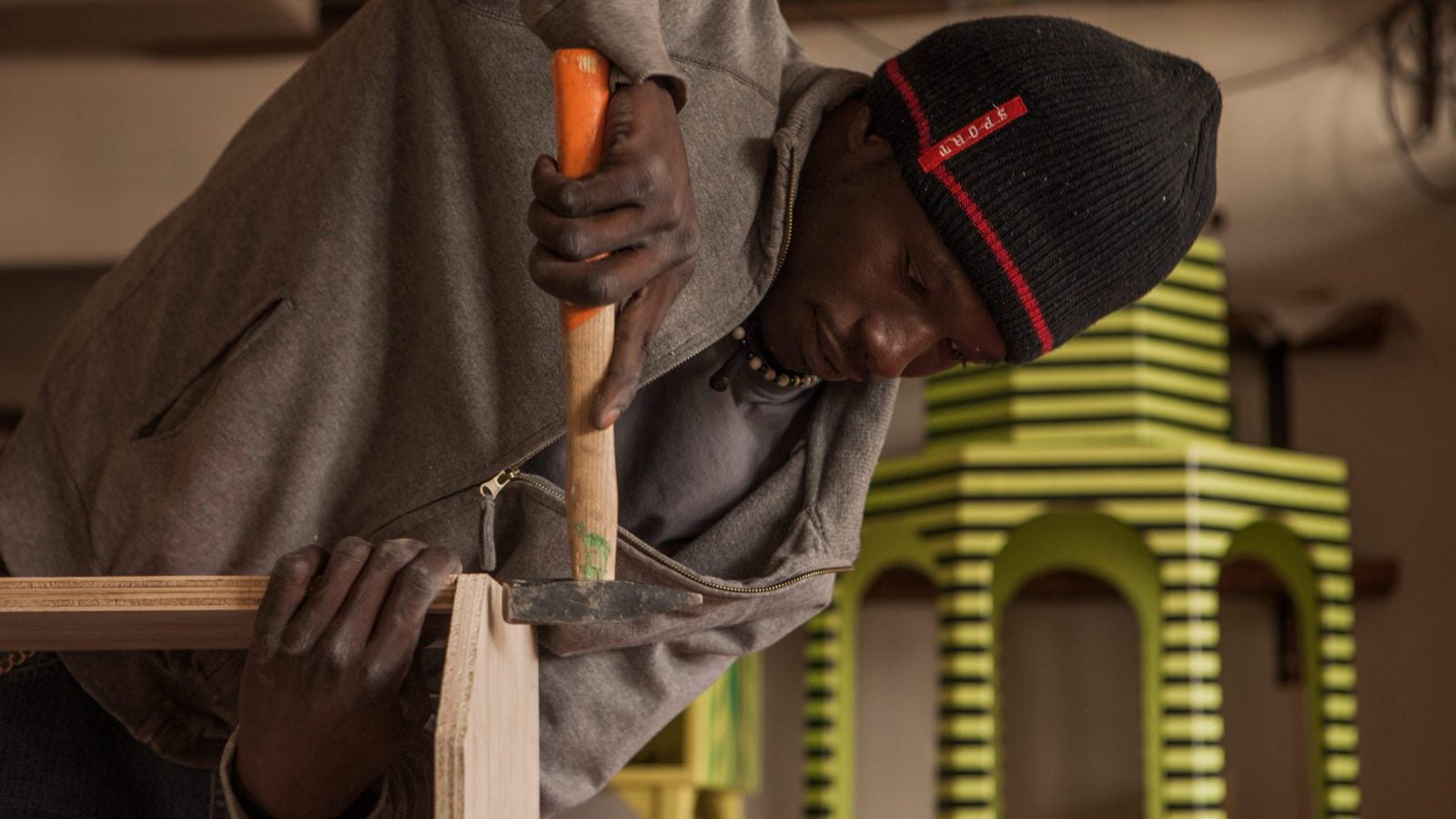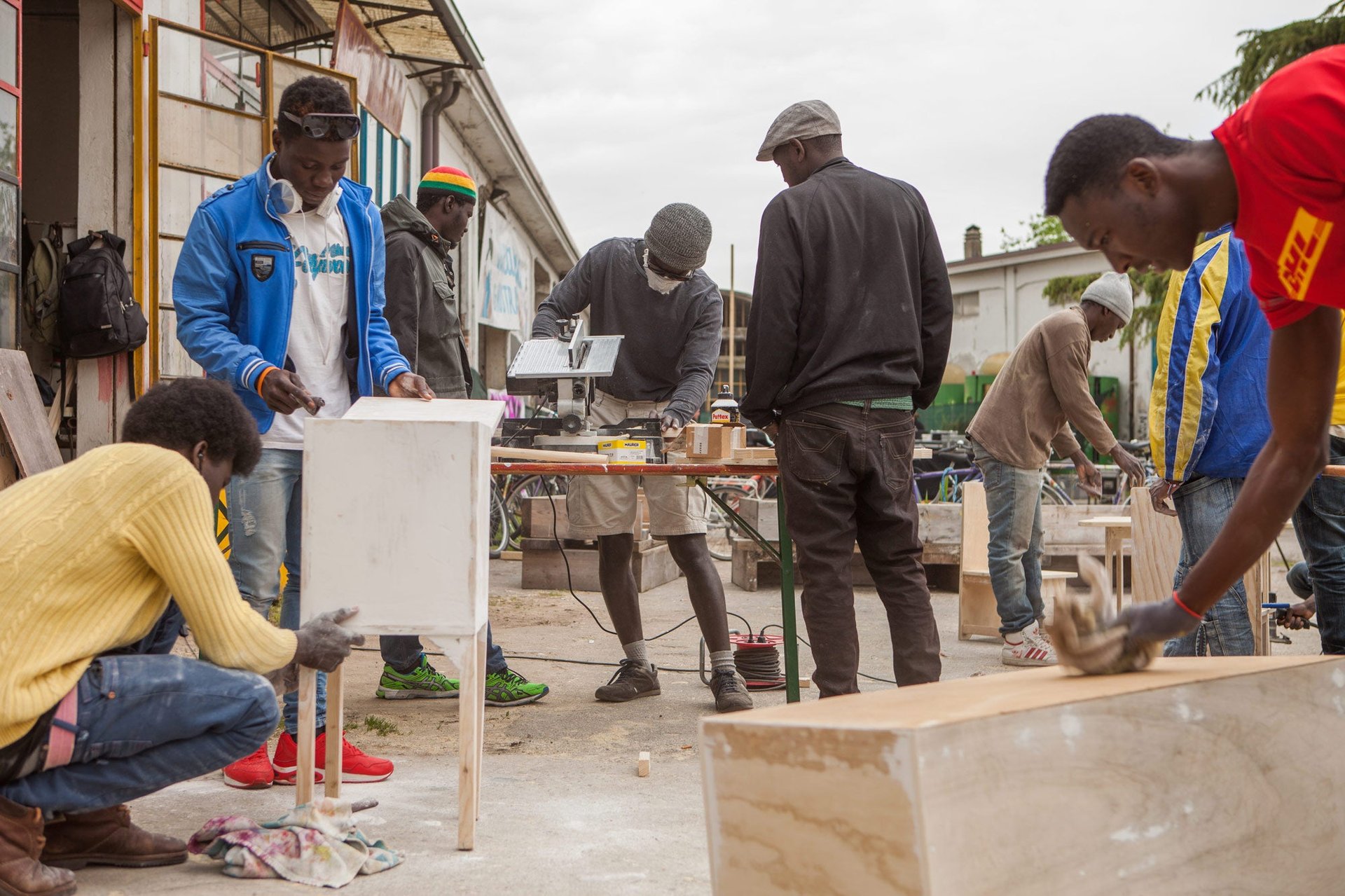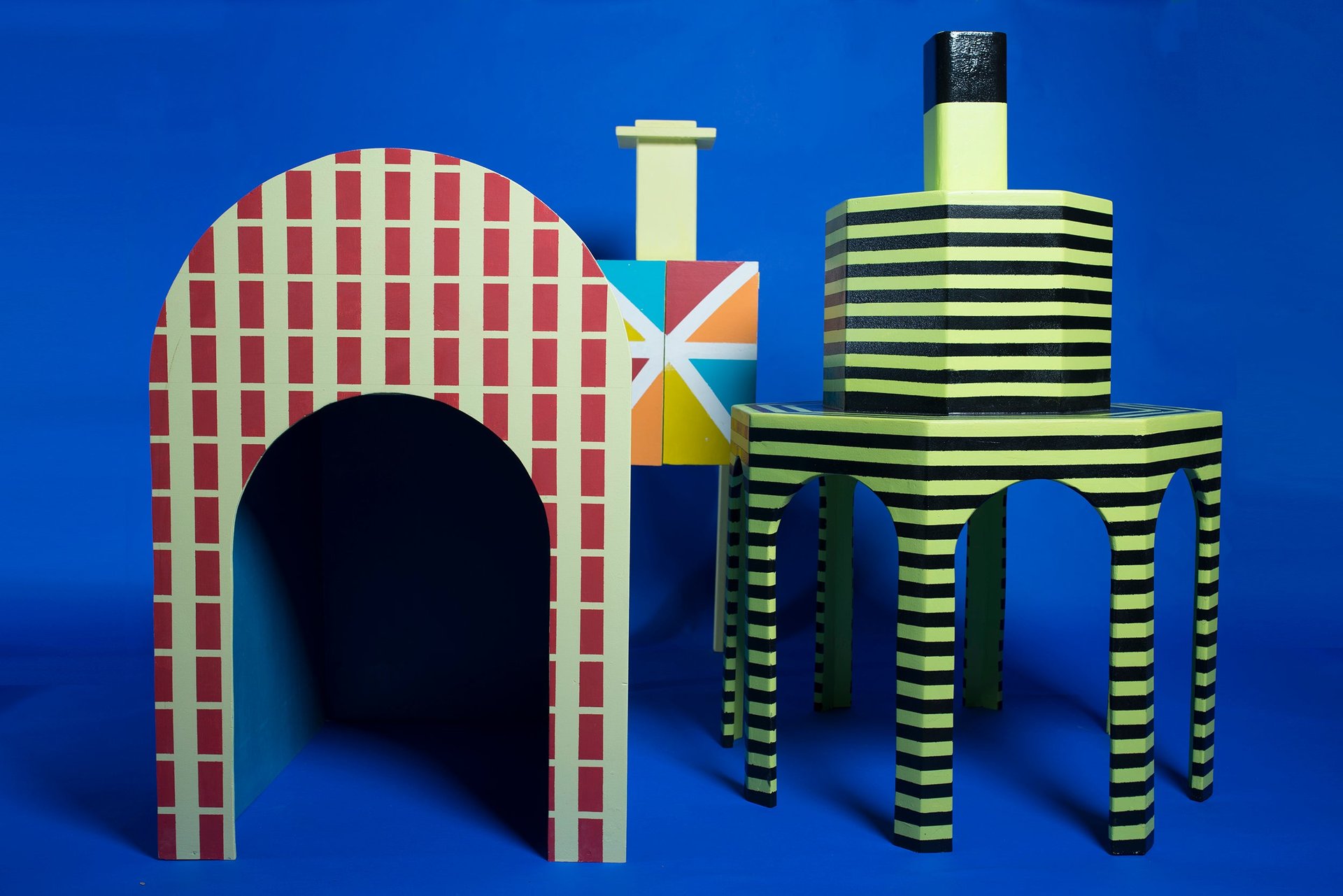One Italian city’s ingenious plan to combat xenophobia with design
Thirty years ago, a visitor walking into the yard of Caserma Piave, a former army barracks in Treviso, Italy, would cross paths with Italian soldiers. Today, the same area is a bustling space in which a few dozen Africans go back and forth between a handful of tables, each busy painting chairs, embroidering colorful cushions or stitching grocery bags made of fishing rope.


Thirty years ago, a visitor walking into the yard of Caserma Piave, a former army barracks in Treviso, Italy, would cross paths with Italian soldiers. Today, the same area is a bustling space in which a few dozen Africans go back and forth between a handful of tables, each busy painting chairs, embroidering colorful cushions or stitching grocery bags made of fishing rope.
This is Talking Hands, a migrant-run design workshop where asylum seekers make and sell furniture, embroidery and textiles. Similar initiatives are popping up around Europe; Green Light in Wien and Venice and Cucula in Berlin are two of them. But Talking Hands defies prejudice and puts forward a grassroots solution to the immigration crisis in one of the most xenophobic areas of Italy.
According to the United Nations High Commissioner for Refugees, in the first half of 2017, more than 80,000 migrants arrived on the coasts of Italy fleeing war, poverty and persecution in their home countries. Due to the number of asylum-seekers and the bureaucracy involved in evaluating their cases, the majority of those asking for refugee status end up waiting for months— sometimes years—in overcrowded, privately run “temporary hospitality centers,” some of which take the concept of hospitality to extreme lengths.
“In our camp there are a lot of problems,” says Yaya, a 22-year-old Gambian who reached Treviso in March 2016 after a four-months-journey via Libya and Lampedusa. “We are twenty people in a room of approximately 20 square meters. The food we are given is disgusting. We are treated like prisoners.”

Located just outside Treviso, the center where Yaya resides currently hosts 800 migrants, both men and women. Each person there receives a monthly allowance of 75 euros, plus food and accommodation. The worst thing for Yaya is sitting around all day, with nothing to do, a psychological burden he shares with many other migrants, according to a 2016 dossier that Doctor Without Borders released in temporary hospitality centers across Italy.
One bright spot for asylum seekers is Caserma Piave. Abandoned since 1989, it was occupied in 2014 by Django—a collective of locals reclaiming unused spaces and buildings for the public good. Over the course of two years, the yard and the barracks were turned into a hall for concerts and talks, an organic restaurant, a bike workshop, and a boxing gym dedicated both to locals and to migrants residing in the nearby temporary hospitality center.
In fall 2016, art director and Django activist Fabrizio Urettini, along with product designer Matteo Zorzenoni, embarked on a new venture: a design workshop for migrants. Zorzenoni—whose work has been displayed at the Milan’s Triennale, London Design Festival, Centre Pompidou and Venice Architecture Biennale—set out to design sets of wooden toy houses for toddlers. Yaya and other guys who were already attending the boxing gym enthusiastically joined in, taking it as an opportunity to learn new skills.
“Some had no idea of what they were doing, but they learned relatively quickly and ended up teaching the others,” recalls Zorzenoni.
Yaya and the other participants got involved in the design process, making sketches and models, using recycled materials, and adding colors and textures from their native countries to the design. Zorzenoni carefully controlled the outcome: “I pushed them to make them look contemporary, something that could be commercialized.”

It worked. Priced at 50 euros each, the first toy houses—aptly called Rifùgiati, an Italian word that means both “take shelter” and “refugees”—quickly sold out. They also helped its participants confront the stereotypes and prejudices of the locals. “The best way to convince people that we are not bad is showing them what we can do,” says Yaya, who has being waiting for his permesso di soggiorno (residence permit) for over a year now.
This area of Italy is famous for being a stronghold of anti-immigration party Lega Nord. In 2015, the citizens of Quinto, a small town just located ten minutes away, broke into an apartment complex for asylum seekers and set the furniture on fire. Nonetheless, the design workshop has quickly become an effective way to challenge stereotypes.
One man who worked at the hardware store was initially wary, Urettini recalls. “After the third or fourth time that he saw them coming in, he asked them what they were working on and quickly established a connection with them. Now he gives them tools for free.” Other locals heard about Talking Hands and commissioned specific projects to them. One woman asked them to build a cupboard for her bathroom, and the owner of a local hipster pub purchased a set of wooden stools for 40 euros each.
Today, there are 52 participants in the Talking Hands workshop, hailing from countries including Mali, Gambia, Senegal, Nigeria, Ivory Coast, Sierra Leone, Guinea, Guinea Conakry, Mali and Libya. Every day, they wake up early and bike for one hour from the temporary hospitality center to reach Caserma Piave and the workshop. There, the activity is organized in three departments: Objects, Rope Stitching, and Fashion and Embroidery, the latter run by a group of Malian and Nigerian women. Creative exchange between the groups is encouraged.
Some of the participants previously worked as carpenters, painters and leatherworkers. But others were mechanics, fishermen, or footballers, and have no expertise in craftsmanship. And so the workshop isn’t just a diversion from boredom or an occasion to socialize, it’s also a way for them to learn a new skill, which could come handy if their asylum requests got accepted.
Talking Hands typically make 500 to 700 euros each time the group participates in a local market. Part of the money from the sales gets reinvested in tools and materials for the workshop. Another part is used to buy food for collective meals, which are also available to undocumented immigrants who don’t receive the monthly allowance from the Italian government. A third portion of the money is designated for those who need to send money home for family emergencies.
“Seeing these people collectively choosing to share the little they have is really moving,” says Urettini. He and the rest of the Django crew see themselves as facilitators, providing the migrants with library cards, free Italian lessons and legal advice, and interacting on their behalf with the local authorities.
As the commissions to make and renovate objects and pieces of furniture increase, the system can also turn into a production chain, in which the same object is reproduced many times to satisfy market needs. The Rifùgiati toy houses’ second edition is currently being designed and produced. The income from the sales is still small, but the attention for Talking Hands is growing.
“We want to make bigger things. We want people to buy them because they are beautiful,” says Yaya, “I want to turn it into a job.” In a country burdened with chronic unemployment and navigating steep immigration rates, his entrepreneurial spirit may be a model for a new kind of national economy.
Note. On July 4th, not long after this article was drafted, Yaya and another member of the Talking Hands workshop were forcibly transferred to a temporary hospitality center in Aosta, in the Northwest of Italy, approximately 500 kilometers away from Treviso. Yaya still hopes to go back to Talking Hands in Treviso. His asylum request hasn’t been evaluated yet.